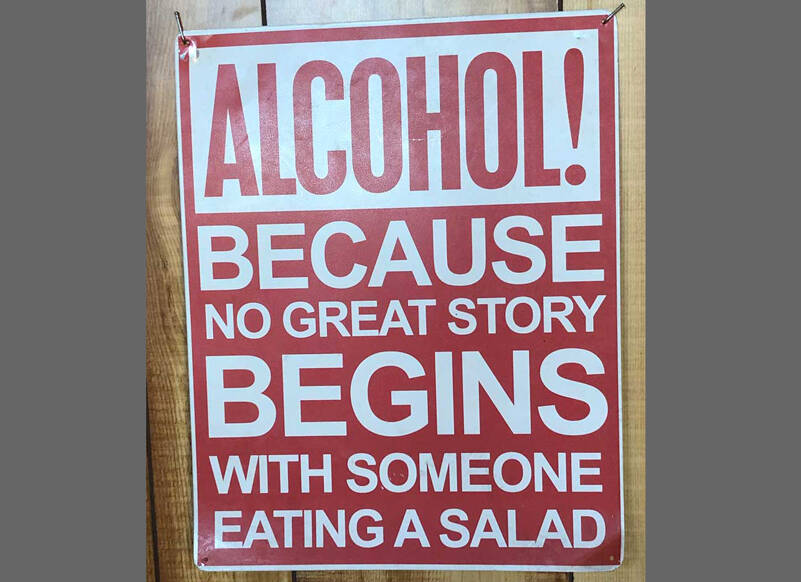By Morf Morford, Tacoma Daily Index
There was a time, back when Barack Obama was president, when the near-universal solution to our polarized political/social environment was to “have a beer” with those that we don’t seem to agree with. From race to public policy, that was a proposed solution.
Or at least a move in the direction of a solution.
There’s probably a good reason few even suggest that any more.
“Having a beer” with someone presumably meant enjoying or at least appreciating someone else’s company without an agenda, and maybe, just maybe, mutually discovering that there was more to that person than a political or social agenda – and that what we have in common is far deeper and more enduring that what separates us.
The assumption seems to be that dialog and relationships are, or at least should be, more important and enduring than tirades and rants about real (or exaggerated, or even imaginary) threats to everything we all hold dear.
Or not.
Over the past year or so, I’ve run into old friends (or, to be more specific, acquaintances that I have known over a long time). In most circumstances, I have the sense that I am in contact with someone who is emerging from a confined space, or something like a cult or propaganda enclave, and who conveys all too often, a seemingly manufactured, if not carefully cultivated sense of outrage.
Most of them have a well-rehearsed litany of complaints nationally and locally about crime and the general collapse of America, if not Western Culture as a whole. Or worse. Maybe even all of humanity is on a precipice – they tell me in hushed, breathless terms.
They never have solutions, but they have a common culprit – though they seem to love coming up with different names – many, I am convinced, are popular just because they are fun to say.
That would be terms like “antifa” or “wokism”. But once those terms lose their appeal, “liberals” or “lib-tards” will do.
One woman, who I had not seen in several months opened up the conversation with “You know I hate democrats”.
What happened to talking about kids, or pets or favorite recipes? Or even the weather?
But it turns out that in our fractured times, there is no safe topic.
In most cases I just quietly listen, perhaps with a nod or two, and try to make sense of the gushing of name-calling, scape-goating and general (and sometimes very specific) hatred and suspicion.
These are predominantly well-educated, older, established white homeowners who, for whatever reason, consider themselves experts on everything from Constitutional Law to public school policies and gender identity.
Gender confusion
For whatever reason, the trans issue has captivated many lately. On a personal note, I have to say that trans or other gender identity issues seem to be questions of individual, hence, personal identity – and I would have thought that conservatives, long advocates of personal freedom, would have been natural allies of individual expression as opposed to government control and conformity.
But, as is often the case apparently, I didn’t understand what the real issue was. And I still don’t.
I just can’t understand why someone else’s gender self-identification is of such passionate concern to some – who, from what they tell me, have no direct knowledge, relationship or experience of the issue.
Is it too much to ask that we show at least some concern over issues that actually do concern (and involve) ourselves?
Or that those with medical, psychological or identity issues find assistance from professionals instead of politicians or media talking heads?
It seems like a radical notion now, but for most of our history it was a given that any medical procedure would be a confidential interaction between a patient and a medical provider. What became of patient/doctor confidentiality?
Gender affirming or gender mutilation?
Who of us would have guessed that gender identity related issues would dominate news media and legislatures across our country?
Almost 500 gender-related bills have been proposed or passed so far in 2023 across the USA.
One has to wonder what has changed – and why some issues, literally non-existent a few years ago, are suddenly so headline-consuming.
You know that we are in trouble as a culture when we use terms like “gender affirming” and “gender mutilation” (both emotionally loaded terms) that refer to the same medical procedure – except one is defined by its advocates as “affirming” while the other is violent and destructive – and both sides use the argument that they are “protecting children”.
Just a few years ago, no one in their wildest fictional fantasies would have expected that mainstream media news shows and blogs would be discussing “gender transitioning” or “puberty blockers”.
In fact who would have imagined that an issue that affects about 1% of our population would ignite such a fury of public reaction?
You can see a state-by-state breakdown of the US trans population here: worldpopulationreview.com/state-rankings/transgender-population-by-state.
Oddly enough, though trans identity is not easy to measure, North Carolina seems to have the highest percentage of transgender people – followed by Delaware and Arizona. Montana, North Dakota, Iowa, Wyoming, and South Dakota hold the lowest population percentage of transgender people.
And, as you might guess, there is also a generational divide. About 5% (one out of 20) young adults say that their gender identity does not coincide with their birth identity, while about “1.6% of 30- to 49-year-olds and 0.3% of those 50 and older identify as trans or nonbinary”. https://www.pewresearch.org/short-reads/2022/06/07/about-5-of-young-adults-in-the-u-s-say-their-gender-is-different-from-their-sex-assigned-at-birth/.
I can’t help coming to the conclusion that issues like transgender issues and apocalyptic horror stories are the fodder of political campaigns to, at minimum rouse emotions to divide us and, beside promoting the disunity that also plagues us, also keeps us from addressing actual issues that do impact us all.





